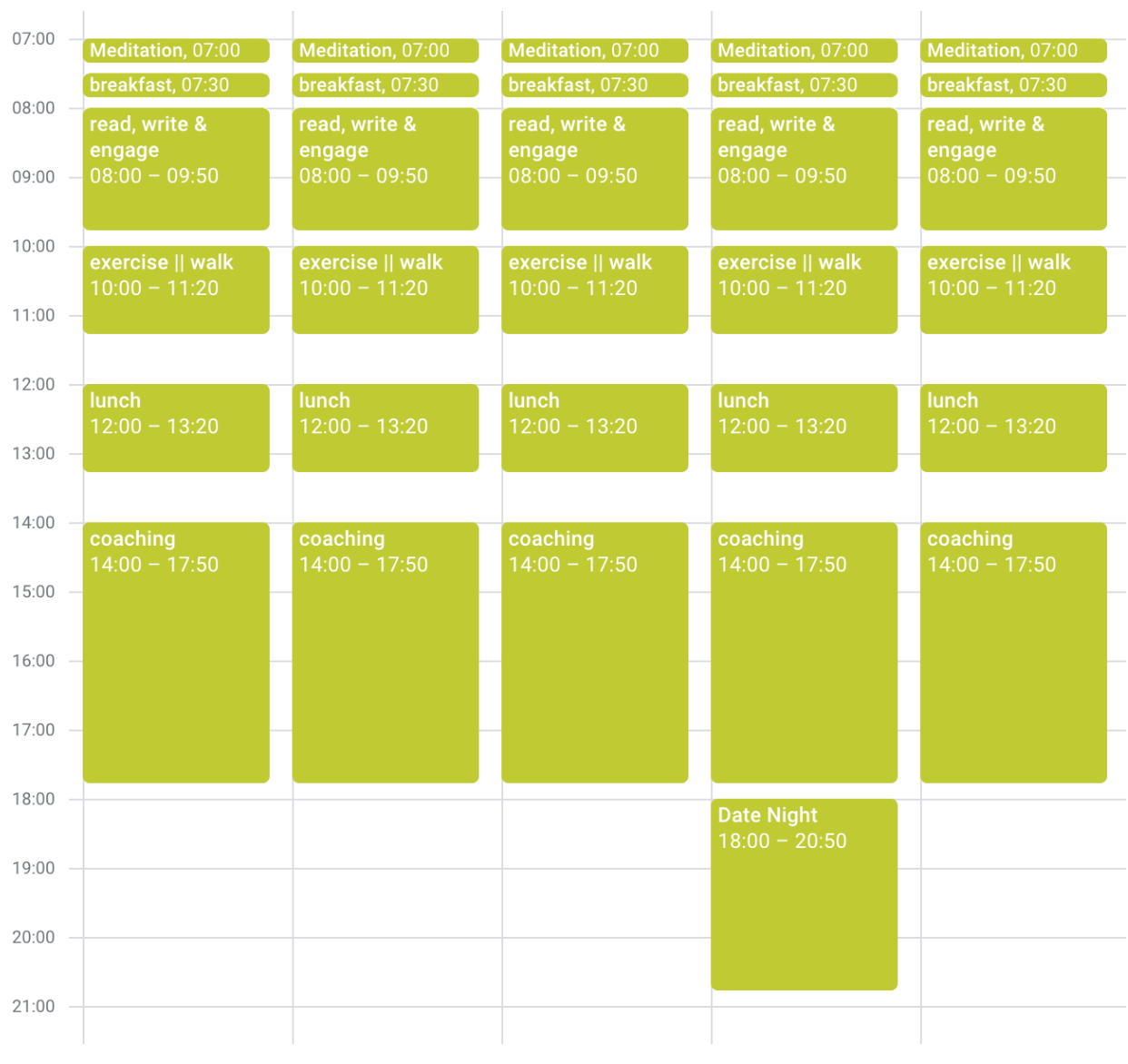The Hagakure #65: Sunday Round-Up
Paying attention to what has your attention, not giving your power away, and how what we truly want is often not what we ask for.
Fresh off a nice 40 km bike ride in the outskirts of Berlin and Brandenburg, I look back over my week and I couldn’t feel more grateful. I started new engagements with a bunch of new folks who filled me with enthusiasm and possibility. ❤️
Coaching tech leaders has been one of the most rewarding endeavors of my career. It’s probably the first time in my life where I feel like I have arrived—not in terms of the quality of what I do, but in terms of fit between who I am, who I’m becoming, and what the world needs.
I no longer feel the pull towards the next thing, the next rung in the ladder. Having a crystal clear “why,” it’s now all about deepening the “what” and the “how.” It’s about the journey of mastering the craft of helping someone become who they had the potential to be all along.
But enough of the starry-eyed stuff. Onwards this Sunday round-up of my top 3 LinkedIn posts of the past week. 📝
Wishing you an interesting week ahead! 🙏
Everyone wants to prioritize their time better. But how often do you pay attention to what has your attention?
And if you don’t, have you ever wondered? 🤔
One effective approach to assessing your focus starts by defining what *should* have it.
Ensure you have a clear sense (not certainty!) of your goals and what you're aiming for in your work and life. Then, identify the inputs needed to achieve those outcomes.
For example, if I aim to expand my online audience, I can read broadly, write frequently, and spend time with other creators and their content. If I want to become a better coach, I should dedicate time to coaching, learning, and connecting with colleagues.
One useful concept I learned from Don Neufeld and Dan Martell is envisioning your “perfect” week. I create a separate calendar that outlines this vision, as shown in the image below. I then overlay my regular calendar on top of it.
This process allows me to gain clarity on what's important to me. And it lets me review the differences between my ideal week and my actual week at its end:
👉 What accounts for the disparities I notice?
👉 Should I refine my ideal week?
👉 How did I feel this week? What consumed most of my energy?
This feedback loop allows me, over time, to adjust towards the rhythm and routine that align best with who I am, and where I aim to be.
PS - What's your strategy for enhancing your attention management? Let me know in the comments below. ⬇️
Yesterday, I did a mentoring session with an engineering manager.
He was angry at being passed for a promotion, and for not getting clear expectations from their manager.
After the whole rigmarole that has gone on for months, now he’s being asked to take on a project nobody wanted to take.
He was frustrated because it felt like he was being asked to do his manager a favour by taking on this mess of a project. And what would he get in return, he wondered?
Here’s the advice I gave him.
Forget how your manager… mismanaged.
Forget quid-pro-quod, zero-sum games.
Forget the unfairness of it all.
Why? Because you can’t control what happens, and you sure as hell can’t control what others do.
Feel all the anger and the frustration. Feel it like a hot coal burning inside of you. And then convert that dirty energy into clean energy.
How? By zooming out and focusing on YOU.
What do YOU want?
Where are YOU going?
What’s important to YOU—in the long run?
Selfish? Not at all. Craving success at the expense of others is selfish. Getting clear on what truly moves you, what path you’re on, centers you. That’s self-care.
Now, come back. What can you do, here and now, that will best put you on the track to that vision of your future?
Maybe that shitty project is an opportunity for you to be so good they can’t ignore you?
Maybe figuring out how to give undeniable feedback to your manager is the right thing to do?
Maybe this isn’t the place for you anymore and if so… move on?
Maybe… don’t give your power away?
People don’t want what they ask for. They want what they believe that will get them.
Consider the individual fixated on a promotion. This might signify a yearning for recognition, expressed through a tangible advancement.
Someone who obsesses over technical debt might be seeking a sense of accomplishment and security, rather than just addressing code issues.
An employee consistently taking on extra tasks may actually be seeking connection and appreciation from peers and team members.
Why should you, as a manager, care about this?
Because there is always multiple ways to get at the real need, and what someone wants is often just not possible. But if you manage to understand the other person’s need:
You make the other person feel seen and understood.
You might help them gain self-awareness.
Both of you gain a broader range of options to address the true issue.
You foster a stronger working relationship.
Not a bad deal, if you ask me.
Thanks for reading. If you enjoyed this post, please consider hitting the ❤️ button, subscribing for future issues on your inbox, and sharing it using the button below.
Until next week, have a good one! 🙏








Great idea to overlay your ideal calendar on your real calendar to find where your attention goes!
"People don’t want what they ask for. They want what they believe that will get them."
,❤️